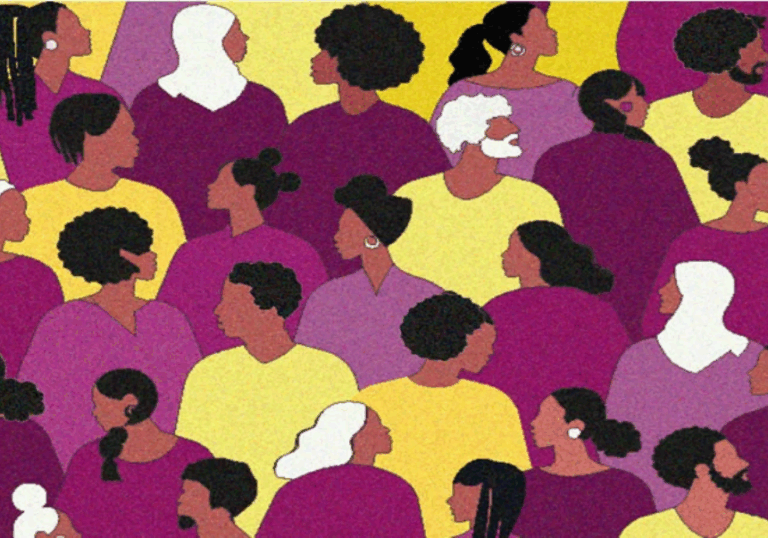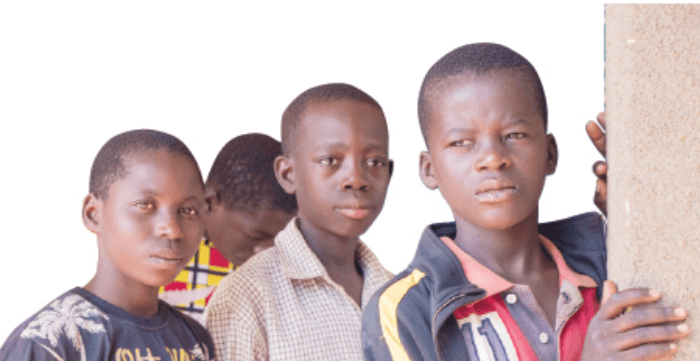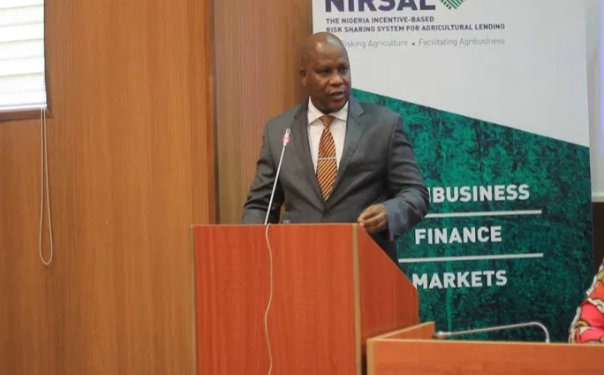After schools resumed for the first term of the 2020/2021 academic session after a long closure forced by the coronavirus, Emmanuel Adeoye, 14, and Timothy Adeoye, 16 were seen roaming the streets of Badore, Ajah, Lagos, on Thursday, November 26.
The teenagers could not go to school because their mother, Florence Adeoye, could not afford it. Their father died of a stroke in 2010 and since then, their mother, a private school teacher, has been responsible for their upkeep.
She was, however, sacked from work following the long closure of schools by the federal government to contain the spread of COVID-19, three weeks after Nigeria recorded its first case on February 28.
Mrs Adeoye told our correspondent that she was let go from work a month after the schools’ closure and since then, life has been unfair to her. She explained that feeding her kids has since been subject to the generosity of her neighbours. Before then, she earned N30,000 monthly.
“The year has really been horrible for me and my two children following the COVID-19 outbreak. The last salary I got was that of March. My children attend the same school where I used to work as a Literature teacher,” she narrated.
“After the closing of school, I was paid just a month’s salary and that was the last time I got paid. The school tried online classes on WhatsApp but parents weren’t paying, hence, the school suspended it and teachers stopped getting paid.”
She explained that upon resumption, she got a text message from the school that her employment has been terminated, a development that currently put the education of her children on hold.
“I have tried to apply at different places but yet to get any positive response. Many organisations are yet to respond, so the little money I could raise from neighbours and church members goes into feeding and house rent,” she said.
Bitter tales
Upon graduating from Adekunle Ajasin University in Akungba Akoko, in 2018 and having completed the National Youth Service Corps in 2019, Fola Ilori got a contract job with Access Bank in Ondo State where he was earning N75,000 each month.
Unfortunately for him, he was one of the contract staff said to have been sacked in May due to the impact of COVID-19. The group managing director of Access Bank, Herbert Wigwe, said the mass sack of its workforce was the product of the COVID-19 lockdown.
The bank disclosed that most of those affected were outsourced staff and those offering “non-essential services.” Following public outcry, the Central Bank of Nigeria (CBN) directed banks not to lay off staff amidst the pandemic but the bank continued with its intention.
One of the victims of the layoff is Mr Ilori who narrated his ordeal to PREMIUM TIMES. “Despite CBN directives, I was laid off alongside some other contract staff and since then, I have been finding it difficult to feed myself”.
“We had a meeting on April 30 before we were sacked. It was at the meeting that the operating manager announced that some staff would be laid off due to COVID-19 lockdown. We were asked to tender our identity cards and other company’s properties with us.
“To my surprise, 10 persons including me were laid off. I was in the marketing department with the most affected individuals. Upon receiving our letter, it read that we were laid off because of poor performance.”
This newspaper obtained a copy of his dismissal letter.
He told PREMIUM TIMES that life has not been easy for him as he has been unable to secure another job. Also, his parents died just after he graduated, hence, he has nobody to support him financially.
“I took a laundry job around August but it has not really been good for me,” he narrated.
For Angela Dairo, she was laid off by a travel company in the Federal Capital Territory (FCT) when the nationwide coronavirus lockdown happened. She has since tried to seek more opportunities but none has come her way.
“I used to work with a hospitality company where we help people to book flights and even hotels in any state or country they wish to travel to. Our company was, however, affected when the government announced lockdown and also banned local and international travels.”
She explained to our correspondent that upon losing her job, she took a new challenge of investing in hand sanitisers due to high demands then. She sadly said she did not make the expected profit from the business following the relaxation of the lockdown.
“Nigerians no longer take the pandemic seriously following the relaxation of curfew and many are also using dry gin as an alternative, so it reduced the profit we ordinarily think we should be making.”
Another woman, Iya Segun, used to sell fruits to students at the Lagos State Model College, but her business collapsed after the closure of schools.
During the pandemic, she engaged in selling ankara nose masks in traffic to support her bricklayer husband and also feed their three children. However, when schools resumed, she was asked to stop coming.
“The principal of the school said COVID-19 will not permit them to accommodate sellers from outside and that was the end of my activities in the school.”
Unemployment figures
Those that spoke with PREMIUM TIMES are just few of many individuals that COVID-19 has rendered jobless, spiking the rate of unemployment in Nigeria.
According to the National Bureau of Statistics (NBS), the unemployment rate in Nigeria rose to 27.1 percent in the second quarter of 2020.
The new rate was an increase from 23.1 percent in the third quarter of 2018 , which was the latest figures released before the recent figure in August 2020. The major cause of this rise has been likened to the impact of the coronavirus, amid depleting oil revenues.
Before then, the federal government has raised alarm that the unemployment rate in Nigeria would reach 33.5 per cent by 2020. The Minister of Labour and Employment, Chris Ngige, expressed worries over the incessant increase in the rate of unemployment in the country.
“…it is projected that the unemployment rate for this country will reach 33.5 percent by 2020, with consequences that are better imagined, if the trend is not urgently reversed,” he said while explaining the efforts of the government to address the menace.
“It is a thing of joy to note that Nigeria has not been resting on her oars over the years in terms of dedicated efforts to curb the unemployment problem.”
More so, PricewaterhouseCoopers (PwC), a financial advisory firm, in its 2019 report titled ‘Nigeria Economic Outlook Top 10 themes for 2019’, predicted that the unemployment rate will “continue to trend upward even as the youth population expands rapidly with more than half of the population under the age of 30.”
Analysts weigh in
Public and economic analysts told our correspondent that beyond COVID-19, the crash in the price of crude oil worldwide also contributed to the spike of unemployment rate in Nigeria.
A member of the Democratic Socialist Movement (DSM), Hassan Soweto, said COVID-19 with the associated lockdown, has created crises in terms of production and commercial activities in the country.
“The spike in unemployment rate is not restricted to any sector and that is why most families are affected one way or the other. More so, the economic recession has worsened the situation and to get out of this mess, we must understand the fundamental reasons for the crisis.”
“Nigeria economy is run by the interests of the few rather than the masses which means that even without coronavirus, our economy could also lead to recession without recession, based on two factors which are the slow growth of our economy and crash in the price of crude oil.”
“COVID-19 is only an accelerator because Nigeria has always been the world poverty capital. The nation’s economy is built on capitalism, so the citizens will always be unemployed or underemployed. If we are really ready to solve the issues, then the government must be ready for a system that accommodates people through socialism.”
“The jobs this current administration is creating with stipends cannot change the condition of people. They are jobs for paupers and cannot move Nigeria forward”.
In his reaction, a public affairs analyst, Jide Ojo, said insecurity in Nigeria is one of the major causes of high rate of unemployment.
“While it is right that the government is doing the needful by setting up some stimulus packages like the 774,000 jobs, we are yet to see their impact and accomplishments because some have even been politicised for politicians’ friends and families.”
Speaking on insecurity, he said, “with the killings of farmers by bandits and boko haram, many who are even advised to go into farming are running, so this has also contributed to the challenges. The solution to this issue is having a responsible government.”



